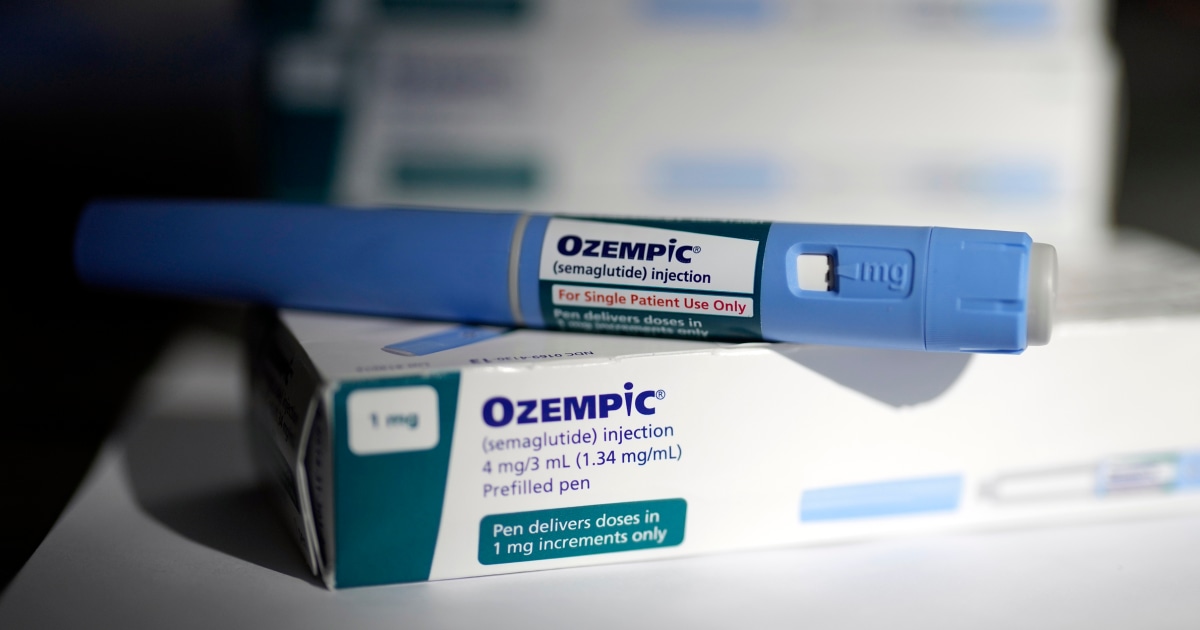
Health agencies in the U.S. and Europe say there’s no evidence that thoughts of suicide or self-harm are linked to the popular weight loss and diabetes drug semaglutide, which is sold under the brand names Ozempic and Wegovy.
After a nine-month review, the European Medicines Agency concluded Friday that “the available evidence does not support a causal association” between GLP-1 receptor agonists, the drug class that includes semaglutide, and suicidal thoughts or actions.
The Food and Drug Administration arrived at a similar conclusion in January. The agency examined reports of suicidal thoughts or actions to its adverse event reporting system, but a preliminary review found there wasn’t a clear link to the use of GLP-1 receptor agonists. However, the FDA said in a statement it “cannot definitively rule out that a small risk may exist” and would continue to look into the issue.
As semaglutide rose in popularity last year, a small number of users reported suicidal thoughts while taking it.
As of December, the FDA’s adverse event reporting system had received 157 reports of suicidal ideation attributed to Ozempic and 18 attributed to Wegovy. By comparison, more than 2.6 million people in the U.S. were prescribed semaglutide from January 2018 to September 2023, according to data provided to NBC News by Epic Research, a health analytics firm.
“I don’t think that we can say that the question is completely closed, but the evidence that we have so far is reassuring,” said Dr. Eduardo Grunvald, an obesity medicine physician at UC San Diego Health. He consults for Novo Nordisk, the maker of Ozempic and Wegovy, but did not speak on behalf of the company.
Novo Nordisk told NBC News it “stands behind the safety and efficacy” of its GLP-1 drugs when used correctly and taken under the care of a licensed health care professional. The company said it will continue to monitor reports of adverse reactions, including suicide and suicidal ideation.
“We look forward to working with FDA as they complete their review,” the company said in a statement.
The FDA approved Wegovy for weight loss in 2021. The agency requires any chronic weight management medicine that works on the central nervous system to carry a warning about suicidal ideation. Wegovy fits that bill, so its prescribing label tells doctors to monitor for depression or suicidal thoughts.
Ozempic, a different dosage of semaglutide, does not carry such a warning, since it’s only approved to treat Type 2 diabetes — though some doctors prescribe it off-label for weight loss.
Semaglutide was shown in trials to significantly lower blood sugar levels and cut body weight by an average of 15%.
“Overall, clearly, the benefits are winning the race compared to the risks of these drugs,” Grunvald said.
A Nature Medicine study in January found that people taking semaglutide were up to 73% less likely to report suicidal thoughts than people taking other weight loss or diabetes medications.
The study analyzed the medical records of nearly 1.6 million patients with Type 2 diabetes and more than 240,000 patients with obesity. One analysis in particular followed two groups, each with around 53,000 patients who had obesity or were overweight but had no history of suicidal thoughts. The first group was prescribed semaglutide, while the second was prescribed anti-obesity drugs that weren’t GLP-1 receptor agonists. After about six months, no one in the semaglutide group had reported a suicide attempt, whereas 14 people in the other group did.
The trend was similar for people with a history of suicidal thoughts who were overweight or had obesity, as well as those who were taking semaglutide for Type 2 diabetes.
“We saw a lower risk associated with semaglutide compared to other medications, but we don’t know exactly the mechanism yet,” said Rong Xu, the author of the study and a professor of biomedical informatics at Case Western Reserve University.
“We’re not saying the risk is zero,” she added. “We just compared to other medications and we didn’t see an increase.”
Doctors who regularly prescribe semaglutide say there may be other reasons why patients taking the medication report suicidal thoughts. Among their leading theories: Semaglutide mimics a hormone in the gut that signals to people that they’re full, so they eat less. That might negatively affect people’s moods if they normally use food to cope with depression.
“That doesn’t mean that it causes suicidal ideation. It just means that it may dampen your feeling pleasure from certain foods that you’re used to eating to hide your feelings of depression,” said Dr. Caroline Apovian, co-director of the Center for Weight Management and Wellness at Brigham and Women’s Hospital, who sits on Novo Nordisk’s scientific advisory board.
Bariatric surgery works similarly in terms of suppressing appetite, Apovian said, and suicide rates are at least four times higher among people who have undergone bariatric surgery than among the general population.
For the most part, however, doctors say semaglutide improves the health of patients with obesity.
“From my clinical experience, people in general overwhelmingly feel much better after they’ve lost this weight,” Grunvald said. “They feel physically better, and they also many times feel emotionally better.”
If you or someone you know is in crisis, call 988 to reach the Suicide and Crisis Lifeline. You can also call the network, previously known as the National Suicide Prevention Lifeline, at 800-273-8255, text HOME to 741741 or visit SpeakingOfSuicide.com/resources for additional resources.






